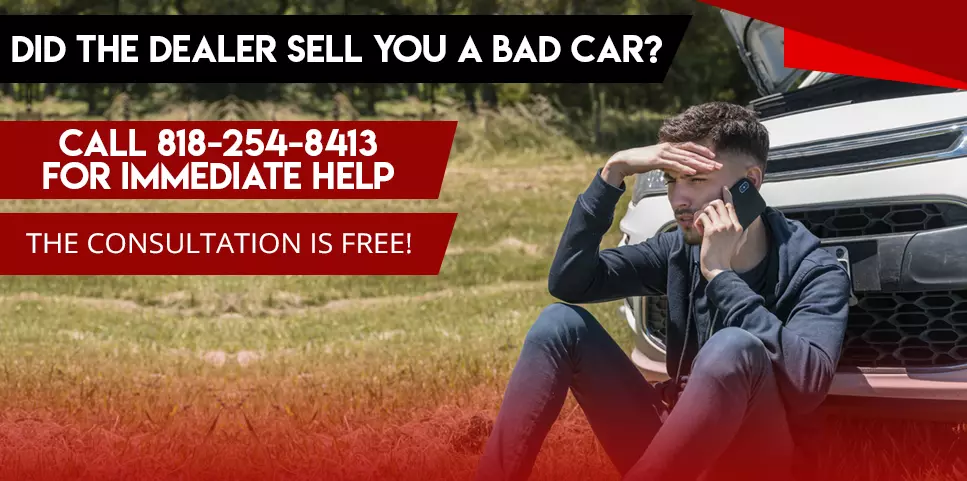
Losing your car to repossession can be a stressful experience, especially if it’s done illegally. While falling behind on payments may lead to repossession, it’s crucial to understand that not all repossessions are lawful. In fact, illegal car repossessions are more common than you might think, and they can leave you feeling helpless and unsure of your rights.
If you believe your vehicle has been wrongfully repossessed, it’s important to know what rights you have. Wrongful repossession occurs when proper procedures aren’t followed, such as failing to provide you with a repossession notice after taking your car. In these cases, the repossession may be considered illegal, and you may have grounds to challenge it.
At Consumer Action Law Group, our wrongful repossession lawyers understand the complexities of California auto fraud laws. We can help you determine if your car was repossessed illegally and guide you through the process of reclaiming your vehicle. Even if you’re behind on payments, auto dealerships and lenders must follow strict legal procedures when repossessing a car. If they’ve failed to do so, you may have a valid claim to get your car back.
Signs of Illegal Repossession
Understanding whether your car was repossessed illegally is crucial for protecting your rights. Here are some key signs that may indicate a wrongful repossession:
- Lack of proper notice: In California, lenders must provide you with written notice before and after repossessing your vehicle. The pre-repossession notice should inform you of your right to catch up on payments. After taking your car, they must send a notice explaining how you can reclaim it. If you didn’t receive these notices, the repossession might be illegal.
- Breach of peace: Repossession agents can’t use force, threats, or cause a disturbance when taking your vehicle. If they broke into your property, used abusive language, or physically threatened you, this violates California law.
- Repossession from private property: Taking your car from a closed garage or gated area without your permission is illegal. Repossession agents must have lawful access to the vehicle.
- Mistaken identity: Sometimes, the wrong car is repossessed due to clerical errors. If this happened to you, it’s clearly an illegal repossession.
- Improper sale of the repossessed vehicle: After repossession, lenders must follow specific procedures when selling your car. They should give you a chance to reclaim it and provide notice of the sale. If they didn’t follow these steps, you might have a case.
- Repossession after bankruptcy filing: Once you file for bankruptcy, an automatic stay usually prevents creditors from repossessing your property. If your car was taken after you filed, this could be illegal.
- Violation of the Servicemembers Civil Relief Act: Active-duty military personnel have special protections against repossession. If you’re in the military and your rights were ignored, the repossession may be unlawful.
If you recognize any of these signs in your situation, it’s important to act quickly. Wrongful repossession lawyers can help you understand your rights and take appropriate action to recover your vehicle. Remember, even if you’re behind on payments, lenders and repossession agents must follow the law. Knowing these signs can help you identify potential violations and protect your interests.
What to Do If Your Vehicle Is Wrongfully Repossessed
If you suspect your car has been illegally repossessed, it’s important to act quickly and decisively. Here are the steps you can take:
- Document everything: Write down all the details of the repossession, including dates, times, and any interactions with the lender or repossession agents. This information will be crucial if you need to take legal action.
- Contact the lender: Reach out to your lender immediately to discuss the situation. Ask for a detailed explanation of why your car was repossessed and request copies of all relevant documents.
- Review your loan agreement: Carefully examine your contract to ensure you understand your rights and obligations. Look for any clauses related to repossession and default.
- File a complaint: If you believe the repossession was illegal, file a complaint with the California Department of Financial Protection and Innovation (DFPI). They can investigate the matter and potentially take action against the lender.
- Consider legal action: If you’re unable to resolve the issue directly with the lender, it may be time to seek legal help. Wrongful repossession lawyers can assess your case and advise you on the best course of action.
- Explore bankruptcy options: In some cases, filing for Chapter 13 bankruptcy can help you recover your vehicle and create a plan to catch up on payments. This option should be considered if your vehicle was repossessed through legal means because you were not able to keep up with payments.
Remember, time is often of the essence in repossession cases. The sooner you take action, the better your chances of resolving the situation favorably. If you’re unsure about your rights or the legality of the repossession, don’t hesitate to consult with our wrongful repossession lawyers who are experienced in California auto fraud cases. We can provide personalized advice based on the specifics of your situation and help you navigate the complex legal process of reclaiming your vehicle.
Your Next Steps After Wrongful Repossession
Wrongful repossession is a serious issue that can significantly impact your life. By understanding the signs of illegal repossession and knowing your rights as a consumer in California, you can better protect yourself from unfair practices. If you believe your car has been wrongfully repossessed, remember that you have options. From documenting the incident and contacting your lender to seeking legal assistance, there are several steps you can take to address the situation.
Don’t let an illegal repossession bring you down. Act quickly, stay informed about your rights, and don’t hesitate to seek professional help if needed. Our wrongful repossession lawyers are experienced in dealing with illegal repossession cases and can help you with yours. Contact Consumer Action Law Group today to get your case evaluated for free.












